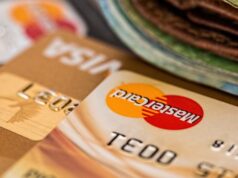The internet makes grand promises about earning potential – quit your job, work from the beach, make millions while you sleep. But for someone just starting out, these fantasies aren’t just unrealistic – they’re paralyzing. The truth is, making your very first dollar online is the hardest and most important milestone. Once you’ve done that, you’ve proven it’s possible. Everything after becomes psychology, not magic. Here’s how to cross that threshold without falling for scams or wasting months on strategies that don’t work for beginners.
Forget everything you’ve heard about passive income or scaling at this stage. Your first dollar will come from trading either time or skills directly for money in the most straightforward way possible. There are exactly three beginner-friendly paths that consistently work: completing microtasks, selling a digital service, or flipping undervalued items. Everything else is noise until you’ve proven you can execute one of these.
Microtask platforms like Amazon Mechanical Turk or Clickworker offer the lowest barrier to entry. You won’t get rich transcribing audio clips or categorizing images for $0.10 per task, but you will learn two crucial lessons: how online earning systems actually work, and whether you have the discipline to follow through. The secret isn’t in the pennies you’ll make initially, but in recognizing patterns – which tasks pay better per minute, which requesters approve work fastest, and how to streamline your process. Someone who methodically completes 200 low-paying tasks gains more valuable experience than someone theorizing about “business models” for months.
Digital services on Fiverr or Upwork represent the next tier. The key here is extreme specialization. Instead of offering “graphic design” (competing with thousands), try “Twitch overlay designs for RPG streamers.” Instead of “video editing,” offer “15-second TikTok cuts of gaming clips with trending sounds.” These niches sound limiting but actually help you stand out in crowded markets. One beginner made her first dollar by offering to add realistic pencil shading to people’s digital drawings for $5 – a service so specific that buyers seeking exactly that found her immediately.
Flipping physical items requires no upfront skills, just observation. Check your local Facebook Marketplace or thrift stores for underpriced items that sell for more on eBay or Poshmark. A student in Ohio started by reselling used college textbooks from dorm move-out days, making his first dollar profit on a 3purchaseflippedfor3purchaseflippedfor8 plus shipping. The magic happens when you identify items that are mispriced due to seller ignorance – vintage clothing listed as “old coats,” collectible toys marked as “kid’s junk,” or specialty tools posted without proper names.
The psychological barrier most beginners face isn’t ability but legitimacy. Doing work that feels “small” or “unimpressive” triggers self-sabotage. An office worker might hesitate to transcribe audio for 0.50butwaste0.50butwaste50 on an “online business course” that goes nowhere. The breakthrough comes when you realize that online income compounds through demonstrated action, not intention. Every completed task, no matter how minor, moves you closer to understanding what actually converts.
Payment proof changes everything. Once you see that first dollar hit your PayPal or direct deposit, the mental shift is irreversible. A London college student described it as “realizing money was just sitting in plain sight waiting to be picked up” after making £0.80 labeling images. That tiny validation propelled her to earn £97 the following week by combining microtasks with flipping thrift store books.
Timing plays an underrated role. Most beginners quit because they attempt their strategy at the wrong moment. Survey sites pay more during weekday business hours when companies need quick consumer feedback. Flipping yields better finds at month-end when people clear out apartments. Even Fiverr gigs get more visibility when posted on Tuesday mornings rather than weekends. These patterns become visible only after you’ve started, which is why premature optimization is the enemy of the first dollar.
The tools needed are probably already in your possession: a smartphone, internet access, and a payment method. Excuses about lacking equipment or software usually mask fear of starting. That same Ohio textbook flipper took his first product photos with a three-year-old Android phone against a white bedsheet background. The buyer cared about the book’s condition, not the photography.
Common pitfalls derail most beginners. Chasing multiple methods simultaneously guarantees you’ll master none. Waiting for the “perfect” idea wastes finite motivation. Checking earnings obsessively in the first 48 hours leads to abandonment. The antidote is committing to one approach for a set period – say, 10 hours of microtasking or listing 20 flip items – before evaluating.
Your first dollar matters more psychologically than financially. It proves you can navigate an online transaction from start to finish – finding an opportunity, delivering value, and receiving payment. Every successful online earner remembers that first small win because it shattered the myth that internet money requires special privilege or luck.
After crossing this threshold, everything changes. You start noticing opportunities everywhere – that random Reddit question about fixing a spreadsheet could lead to a $15 gig helping someone. The outdated menu PDF at your local café hints at a design service they might need. Even unsuccessful attempts teach you what doesn’t work, which is equally valuable.
The timeline varies wildly. Some make their first dollar within hours of starting; others take weeks of trial and error. The difference lies in treating the pursuit like a proper job rather than a hobby – consistent daily action, tracking what works, and eliminating distractions. One beginner documented 37 failed attempts across various methods before succeeding on the 38th. That documentation process itself became a content asset he later monetized.
Seasoned earners will tell you the first dollar is both easier and harder than it seems. Easier because the mechanisms are simple – someone pays you to complete a task or provide a thing. Harder because it requires overcoming the mental block that says “people like me don’t do this.” But once you’ve done it, a world of possibility opens. That initial proof of concept, however small, becomes the foundation for everything that follows in your online earning journey.
The internet hasn’t run out of opportunities – it’s simply matured beyond get-rich-quick fantasies. Real earning begins where most people stop: at the unglamorous but profoundly liberating moment when you prove to yourself it’s possible. Not with a life-changing sum, but with that first, hard-won dollar that changes everything by existing.






